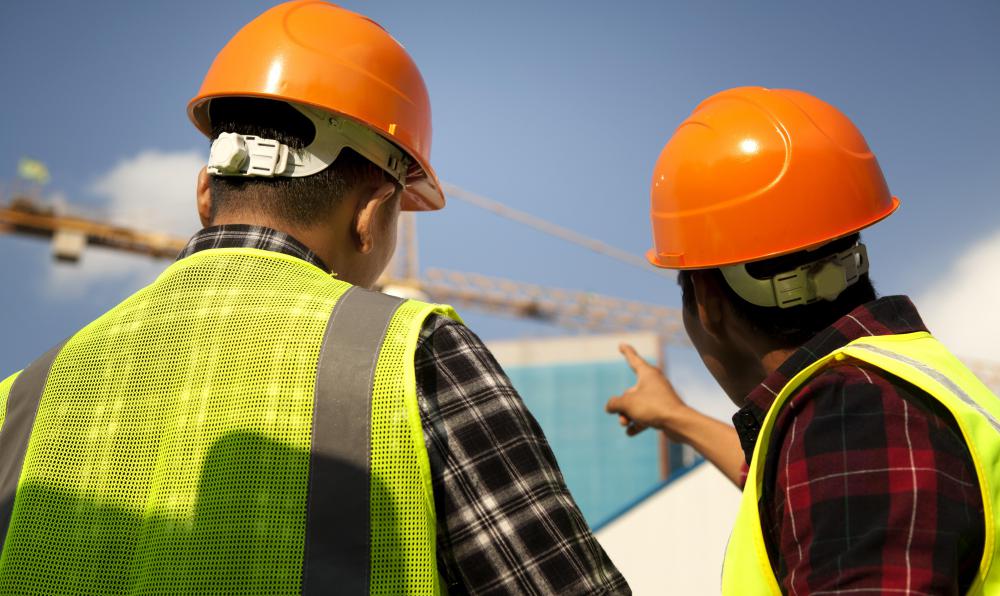The Essential Guide to Preventing Concrete Injuries in NEBOSH Course in Pakistan

Concrete injuries are a significant concern in the construction industry, and understanding how to prevent them is crucial for safety professionals. In Pakistan, the NEBOSH course provides comprehensive training to address these risks. The NEBOSH Course in Pakistan is designed to equip safety officers with the knowledge and skills needed to create safer working environments, particularly in industries involving concrete work.
In the NEBOSH Course in Pakistan, students learn about the various hazards associated with concrete and how to mitigate these risks effectively. This guide aims to outline essential strategies for preventing concrete injuries, emphasizing the practical applications of the NEBOSH training.
Understanding Concrete Hazards
Chemical Burns and Dermatitis
Concrete contains various chemicals that can cause severe skin burns and dermatitis. Safety officers must be trained to recognize these hazards and implement protective measures. The NEBOSH in Pakistan course covers the identification of harmful substances in concrete and the appropriate personal protective equipment (PPE) required to handle them.
Respiratory Issues
The dust generated during concrete mixing and cutting can lead to respiratory problems. The NEBOSH Course in Pakistan emphasizes the importance of respiratory protection and proper ventilation. Students are taught to conduct risk assessments and implement control measures to reduce dust exposure.
Preventative Measures
Personal Protective Equipment (PPE)
One of the core components of the NEBOSH in Pakistan curriculum is the use of PPE. Safety officers must ensure that workers are equipped with gloves, goggles, masks, and protective clothing. These items are essential in preventing skin contact with harmful chemicals and inhalation of concrete dust.
Training and Education
Continuous training and education are vital for preventing concrete injuries. The NEBOSH Course in Pakistan provides extensive training on safe handling practices and emergency response procedures. Regular refresher courses and toolbox talks help reinforce these practices on-site.
Safe Work Practices
Implementing safe work practices is crucial. This includes proper storage and handling of concrete materials, maintaining clean work areas, and using tools correctly. The NEBOSH in Pakistan course teaches safety officers to develop and enforce these practices effectively.
Emergency Response and First Aid
Immediate Action for Chemical Burns
In the event of a chemical burn, immediate action is required. The NEBOSH Course in Pakistan trains safety officers in first aid procedures, including flushing the affected area with water and seeking medical attention promptly.
Respiratory Distress Response
If a worker experiences respiratory distress due to concrete dust, having an emergency plan is essential. The NEBOSH in Pakistan course includes training on recognizing symptoms of respiratory issues and administering appropriate first aid.
Implementing a Safety Culture
Leadership and Commitment
Creating a culture of safety begins with leadership. The NEBOSH Course in Pakistan emphasizes the role of safety officers in promoting a safety-first mindset. This involves leading by example, encouraging open communication about safety concerns, and committing to continuous improvement.
Regular Safety Audits
Conducting regular safety audits is a critical aspect of the NEBOSH in Pakistan training. These audits help identify potential hazards, assess the effectiveness of existing control measures, and recommend improvements.
Encouraging Worker Involvement
Involving workers in safety initiatives increases their awareness and commitment to safe practices. The NEBOSH Course in Pakistan trains safety officers to engage workers in safety discussions, encourage reporting of hazards, and participate in safety drills.
Conclusion
In summary, the NEBOSH Course in Pakistan is an invaluable resource for safety professionals aiming to prevent concrete injuries. The training covers essential topics such as chemical burns, respiratory issues, PPE, emergency response, and the importance of fostering a safety culture. By adhering to the guidelines and practices taught in the NEBOSH in Pakistan course, safety officers can ensure that concrete work is conducted safely, protecting the well-being of all workers involved.





